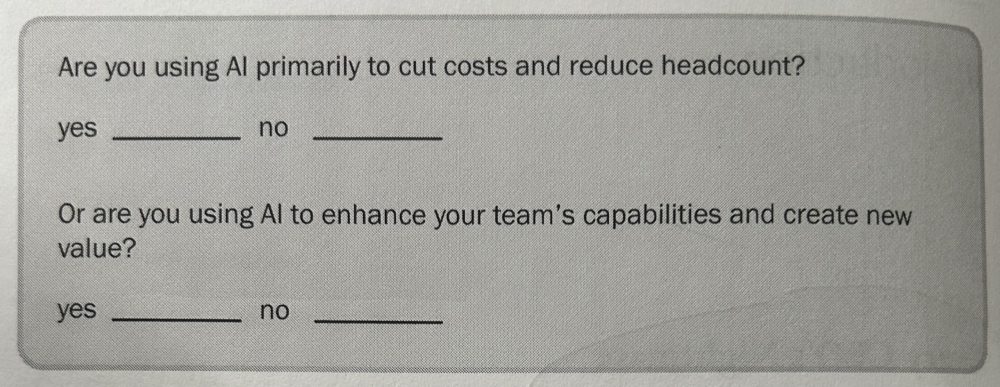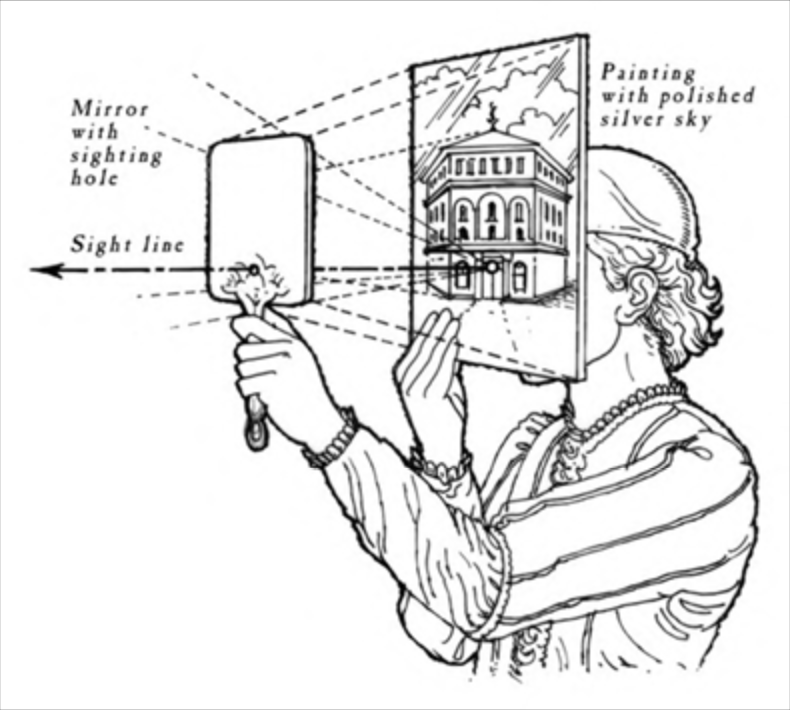If There’s an SOP, You’re SOL
From the desk of Mark E. Jeftovic, easyDNS CEO.
Some time over the Christmas holidays, I experienced what I called a moment of “existential clarity” about AI and it’s ramifications – when I realized that in the not-so-distant future, it was entirely possible that most of easyDNS’ customers would be autonomous AI-driven agents rather than people.
Our internal project to completely rebuild our UX (still ongoing) was close to a quarter in, and it occurred to me that we could be building a bridge-to-nowhere. Why are we creating more elegant ways to render forms that input hostnames and their respective rdata when:
- you could probably just tell the backend what you want for your domain functionality to be and it can generate the requisite zonefile to facilitate it, and then
- not long after that every API is going to sit behind an MCP server and it’ll all be done agentically via automated endpoints anyway.
What was the point? This question still bothers me, but we continue to toil away at the UX rebuild, because even though this is where everything is headed, there will still be a temporally long-tail of copy-pasting IP addresses into forms (in the meantime I spend my spare time vibe coding alternative ways to convey DNS and metadata to a zonefile rendering engine. I can see why this isn’t totally a thing yet, but it will be.)
Recently, I started reading John W. Munsell’s “Ingrain AI” – it hits the ground running, with the introduction titled “Every CEO’s Nightmare”, wherein it lays out the “productivity” induced death-spiral many companies may be blundering into, should they be pursuing AI merely as a cheat-code toward hyper-efficiency.
Munsell poses The Big Question:

For a lot of companies, they’re using these tools to cut headcount – a recent post on Reddit from a laid off Rogers employee alleges that company cut 1,000 call center employees, after having them train up AIs on their jobs. Brutal.
In our case, it’s a definite “no” on 1, “yes” on 2 for the question posed, but even if that’s the case, any companies following the same path as easyDNS may not necessarily reduce headcounts but they will most likely slow down hiring.
I’ve said it in the past, and I’ll reiterate it here: I don’t believe for minute that AI is conscious, self aware or sentient and I don’t think AGI ever happens – but it is a revolutionary breakthrough in natural language processing. I think it was YCombinator’s Andrej Karpathy, in his famous “Software In the Age of AI” keynote who quipped “the most popular programming language of the future will be… English”.
With this, every single person on your team acquires strange new super-powers. In a recent Bombthrower post I called it a “cognitive exo-skeleton” (see: “Is ChatGPT Intentionally Driving You Into Psychosis?“) . It’s like Iron Man’s suit for your brain, except they’re available for a few dollars per month, per employee – turning every single person on staff into a productivity super-soldier – what CEO in their right mind would eschew that?
Forced Acceleration
This all comes with an imperative, and we didn’t really get a choice whether or not to put our hand up for it. If anybody has followed my other writings on Bitcoin and the decentralized revolution, you’ll know that a major theme of my thinking has been that the root cause of mass psychosis and generalized anxiety in the world today – including conspiracy theories and ever increasing polarization – is the accelerating rate of change.
It’s “Future Shock” writ large, to use the Alvin and Heidi Toffler phrase from their books in the 70’s, 80’s. It’s actually, “Future Shock squared” – accelerating acceleration, I and created a neologism “tachyosis” (using chatGPT, as it were) to describe the dynamic:
Tachyosis (n.)
A state of recursively compounding acceleration — where systems evolve faster than they can stabilize, perception fragments, and causality begins to blur. Considered the experiential threshold of the kinematic continuum.“Civilizations in tachyosis cease to distinguish between signal and noise — they become pure velocity.”
Some think that it’s ironically office jobs, clerks and white collar functions on the chopping block first, with physical work enjoying some wiggle room until the robots come, but even that is moving faster than most realize:
4mo ago:
We bought a used forklift & strapped an Ai kit to it4mo later:
We’re moving hundreds of pallets a day in a customers warehouseYesterday I got 3 requests totaling 100+ forklifts
We have to scale right now
V2 coming soon pic.twitter.com/JkXleWZ835
— Victor Boyd (@VictorWBoyd) July 7, 2025
What it means is that, yes, everybody gets a massive brain boost. Having the sum total of all historic and current human knowledge, available at zero marginal cost, changes the game, but it also means that all of that productivity boost has to a happen at a higher level of mental abstraction.
We’re now entering a period where anything that can be formalized will be automated: any roles and functions that can be encoded into Standard Operating Procedures are all going to be rendered as markdown, fed into LLMs and executed agentically.
All of that work gets taken off our plates – so we all have to move up the scale to the next level of cognitive processing.
This has happened before. The Canadian W R Clement, in his ground-breaking book Quantum Jump: A Survival Guide To the New Renaissance attributed the entire Enlightenment and subsequent scientific revolution to the cognitive shift that took hold in humanity with the discovery of perspective in art:

But that took place over centuries.
The next big shift, in terms of mental abstraction, occurred with telecommunications – when “cyberspace” became “the place you were when you were the phone”. I think it was Jon Parry Barlow who made that analogy around the same time US senators were trying to wrap their heads around the internet as “a series of tubes”. You see the juxtaposition there quite clearly as that shift played out over decades.
The same type of shift is happening now, except it’s occurring at the tachyotic pace: Acceleration is itself accelerating across multiple dimensions – AI is coding more AI, which is the development that led me to surmise that The Singularity Has Already Happened.
Forkbombing Reality
AI is now coding AI, and sooner or later we will no longer know where human-generated code stops and AI-generated code begins. Given the natural advantage that GPUs have over our clunky brains, we can safely surmise that, over time, the proportion of AI-generated code will asymptotically reach for everything, while the ratio of human-generated code slides into exponential decay. This has probably already started.
In computer systems there’s a quick-and-dirty way to bring the host to its knees and that’s to run a “fork bomb” that does nothing other than split off two copies of itself… each of which does the same, ad infinitum…
#!/bin/bash # don't try this at home (seriously) /bin/bash $0 & /bin/bash $0 &What we’ve done with AI is we’ve created a kind of hyper-intelligent fork-bomb of self-iterating software.
And there’s really no telling where all this is going or how it’s going to stop.
“@grok, how does anybody even position themselves for this?”
I might literally type that into my app after this post is done to see what it says.
Munsell’s advice to CEO’s:
“You need to:
- Quickly upskill your entire team in AI integration
- Unify AI adoption across all departments
- Accelerate past competitors in operations and innovation
- Avoid pitfalls like job displacement by aligning AI with human creativity
- Build a workforce that’s empowered, not threatened, by AI
This isn’t a suggestion — it’s an urgent necessity. Every day you delay building an AI-first culture, your competition pulls further ahead. AI won’t wait for you to catch up. If you want to thrive in the future economy — and avoid the nightmare scenario — you must make AI central to your business now.”
My advice to everybody else is to take radical, personal action to come to grips with these changes. Get up to speed on these tools, use them to improve your search, work and filtering regimens, and think about ways to improve your personal productivity and expanding your own optionality by leveraging AI.
The world we’re headed into, is one where you should worry less about being replaced by AI and think about career risk you’re taking on from being unable or unwilling to use AI.
Doing that moves your mindset away from AI being some external force that you’re subjected to and shifts it toward being that cognitive exoskeleton you can harness for yourself regardless of what happens to your external circumstances.
We’re all going to have to “Learn To Vibe”.
Coda
As advertised, after this post was published I uploaded it to @Grok and typed that literal prompt.
The answer it gave me was too lengthy to quote here, but I have shared it here.
The bullet points where:
- Get Hands-On with AI Tools Immediately
- Upskill Strategically: Focus on Human-AI Synergy
- Shift Your Mindset to “AI-First” Living
- Prepare for Broader Impacts: Diversify and Adapt
If you aren’t already on the AxisOfEasy mailing list subscribe here for the latest and greatest in “Data-Breachin’ Over-reachin'” tech news.



Leave a Reply